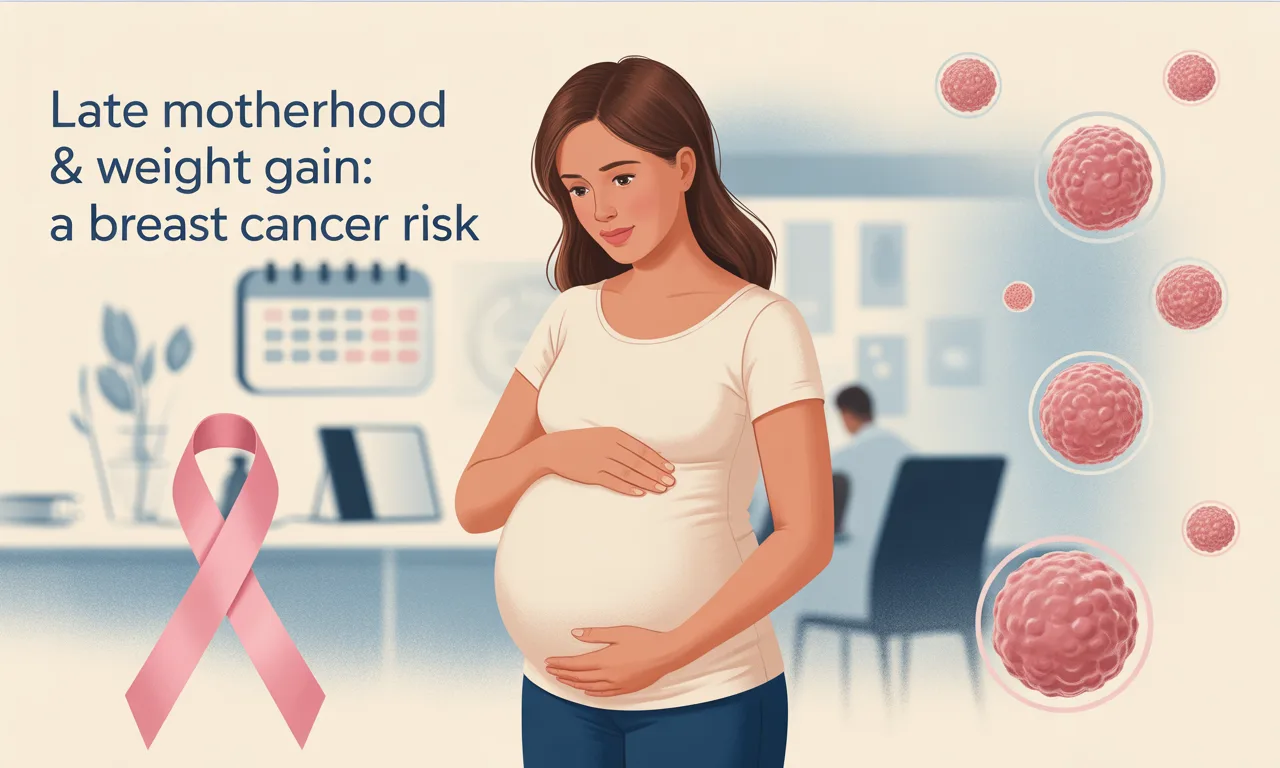Breast cancer has become the most commonly diagnosed cancer among women in India. While most people associate breast cancer with genetics, a groundbreaking new study presented at the European Congress on Obesity highlights something even more alarming—your lifestyle and reproductive choices can raise your risk by nearly three times.
At DNA Labs India, we believe that awareness is the first step toward prevention. This blog explores what the research means for you and how you can assess and manage your breast cancer risk effectively.
📊 New Study Links Weight Gain & Late Motherhood to Breast Cancer Risk
Researchers tracked more than 48,000 women over a period of six years and discovered:
- Women who gained more than 30% of their body weight after age 20, and either had their first child after age 30 or remained child-free, were 2.7 times more likely to develop breast cancer.
- Women who had their first child before 30 and kept weight gain below 5% had the lowest risk.
- Experts emphasized that weight control and timing of motherhood can play crucial roles in influencing long-term breast cancer risk.
🇮🇳 Why This Matters for Women in India
In modern India, lifestyle trends are rapidly shifting:
- Delayed motherhood is common due to educational and career aspirations.
- Urban lifestyles often lead to unhealthy eating habits, low physical activity, and stress-related weight gain.
These factors—though common and often necessary—could be silently increasing your cancer risk, even if you have no family history of breast cancer.
🧬 How DNA Labs India Can Help You Take Control
At DNA Labs India, we offer a comprehensive approach to understanding your breast cancer risk through both genetic and lifestyle-based assessments.
✅ Genetic Testing
We test for high-risk genes such as BRCA1, BRCA2, and other mutations known to increase the likelihood of breast and ovarian cancer.
✅ Lifestyle Risk Analysis
We evaluate key lifestyle factors that contribute to your overall risk profile, including:
- Weight gain since age 20
- Age at first childbirth
- Menstrual and hormonal history
✅ Personalized Risk Reports & Counseling
Our expert team provides:
- Tailored preventive strategies
- Guidance on lifestyle modifications
- Recommendations for more frequent screenings when necessary
💡 Prevention Tips You Can Start Today
Taking proactive steps now can make a real difference:
- Maintain a healthy weight: Keep weight gain in check, especially after age 20.
- Understand your reproductive timeline: Know how timing of childbirth may affect your risk.
- Get screened regularly: Particularly if you’re over 30, have gained significant weight, or have a family history.
- Stay informed: Education is a powerful tool in cancer prevention.
🚨 Early Detection Saves Lives
Breast cancer often develops without symptoms in its early stages. The best time to assess your risk is now, not later.
💬 Book Your Breast Cancer Risk Assessment Today
At DNA Labs India, we help women take charge of their health with cutting-edge testing and personalized insights.
👉 Visit: www.dnalabsindia.com to schedule your consultation.
📢 Share this post with your mother, sister, friend, or colleague. It might just save a life.
Breast cancer remains the most commonly diagnosed cancer among women in India. While genetics are well-known risk factors, a groundbreaking study presented at the European Congress on Obesity has revealed something equally important: your lifestyle and reproductive choices might increase your breast cancer risk by nearly three times.
At DNA Labs India, we believe that knowledge is the first step to prevention. Let’s break down what this new research means for you—and how we can help you assess your risk early.



